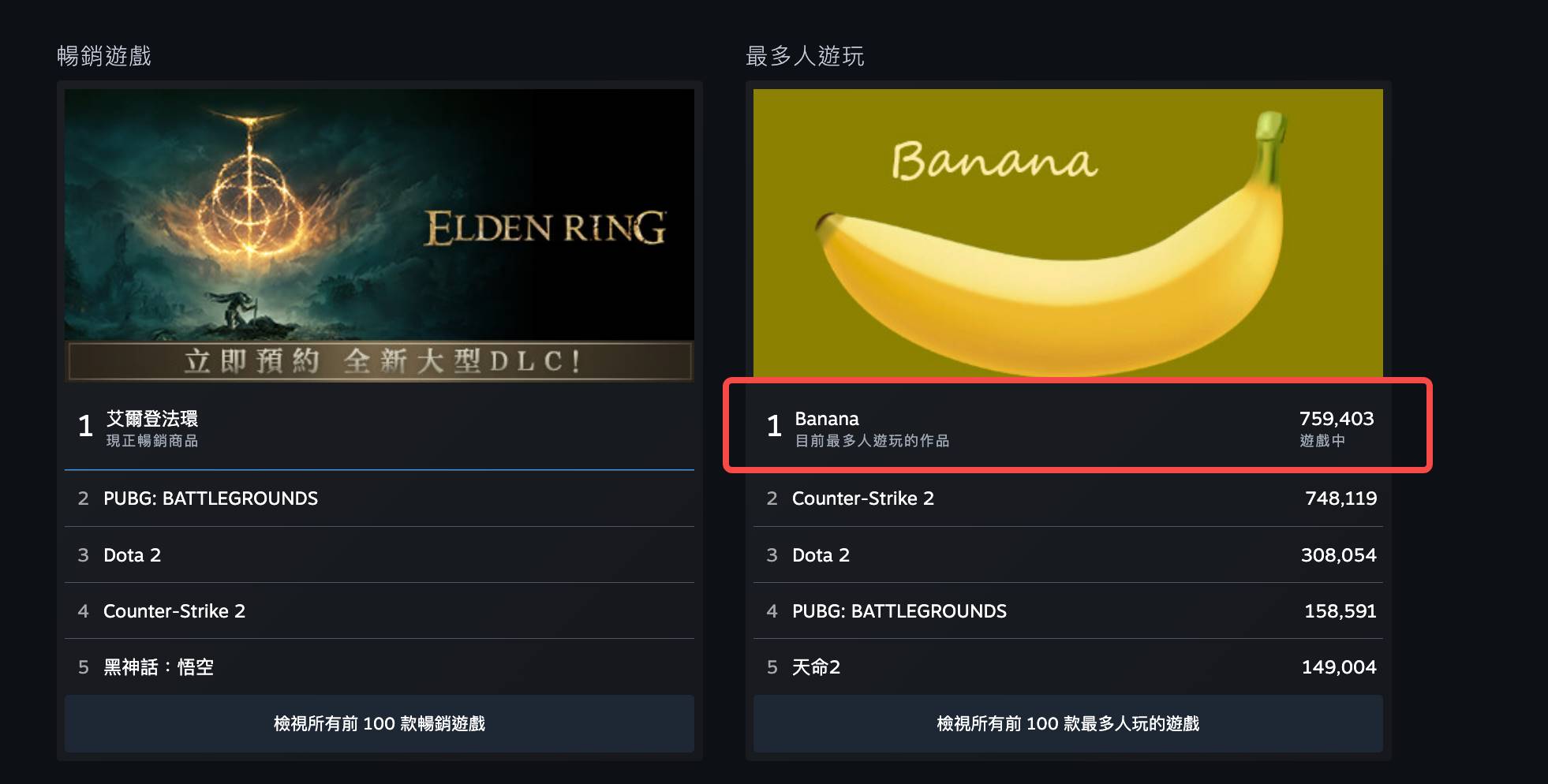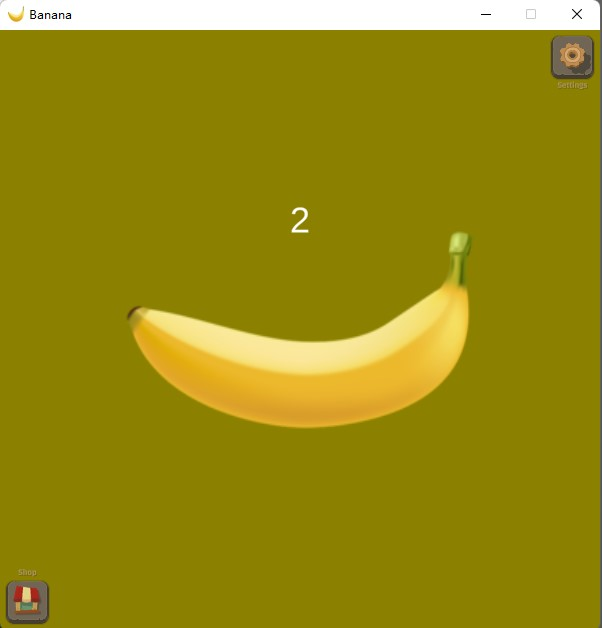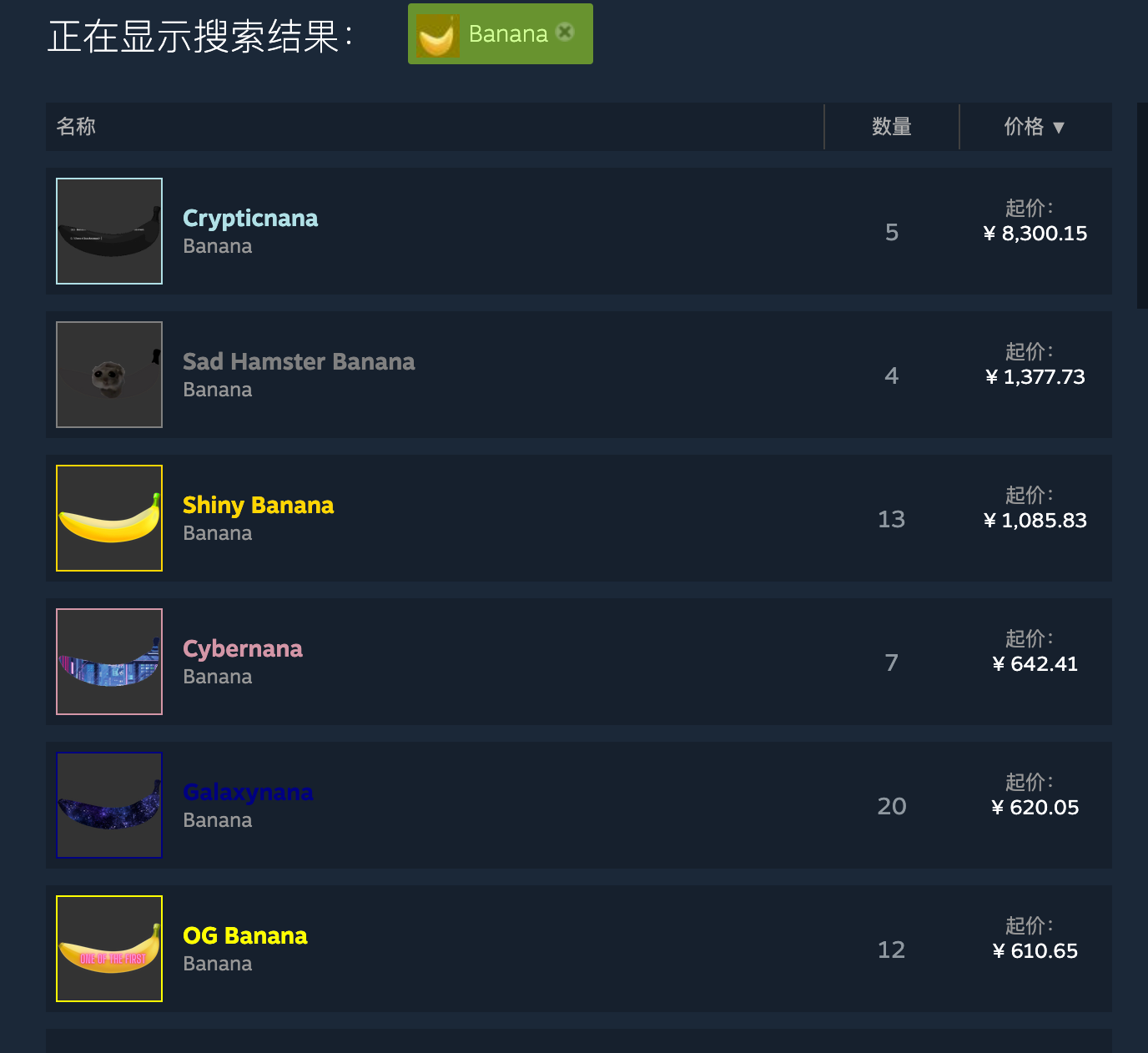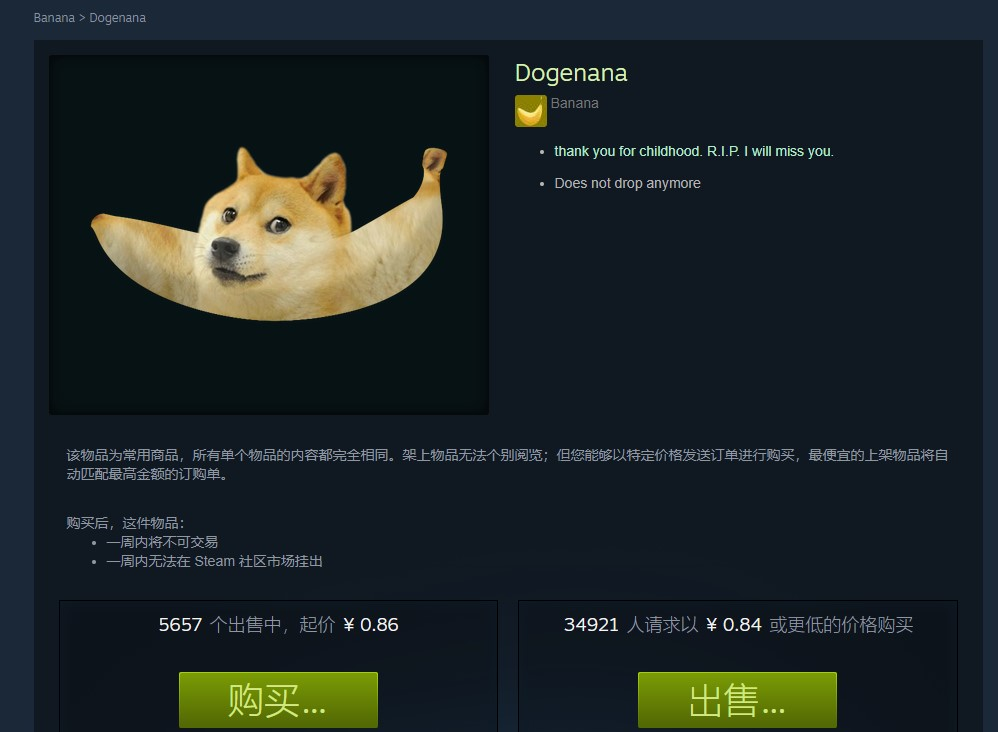No one can't get over making money by clicking.
Written by: Deep Tide TechFlow
"Entering the coin circle is all about making money, who plays games?"
This consensus in the hearts of the "leeks" (a term for inexperienced investors) can be interpreted as, in the traditional gaming community, players probably wouldn't think about making money.
But the fact is, no one doesn't love freebies.
In the circle, Notcoin and Hamster Kombat have popularized the "click to earn money" free small game mode; similarly, this trend of "sheep shearing" has also blown onto Steam, the most popular platform in the traditional gaming community.
In recent weeks, a free small game called Banana on Steam suddenly became popular, to an extent that is beyond reasonable.
According to official Steam data, as of the time of writing, the simultaneous online number of Banana has exceeded 750,000 people, topping the Steam platform's simultaneous online player rankings.

While Banana is thriving, classic titles such as CS2, DOTA, PUBG, and Destiny 2, which are listed behind Banana, are games that even non-gamers have heard of, each with high levels of gameplay and competitiveness.
What's even more interesting is that this Banana small game is only 60MB in size, truly a small game.
Choosing to play the Banana game instead of popular games, what's the point?
Steam version of Notcoin, earn money with a click
Different games, same human nature.
Banana is actually a typical free game where you don't need to understand or learn anything. All you have to do is click like Notcoin, and then you can start expecting to make money.
In terms of gameplay and interface, this banana game is even simpler than Notcoin: it gives you a picture of a banana that you can click with your mouse; as you click, the number on the banana increases, that's all.

Through your clicks, a regular banana will drop after 3 hours, and a special quality banana will drop after 18 hours. So the main process of the game becomes: enter the game, click the banana, wait for a while, and get the banana.
For readers who are not familiar with Steam, Steam platform itself has an "inventory" design, which means that after you play a game, items related to that game will drop into your inventory; these items could be a badge or some props, in short, they are peripheral souvenirs related to the main game to enhance player participation and stickiness.
However, these dropped bananas are far more fragrant with money than souvenirs.
Because Steam has a built-in secondary market, you can directly put these dropped bananas on the market for sale. So, how much are different types of bananas worth?
Doesn't it have a bit of a taste of the NFT market? The valuation of a virtual item completely follows the market, depending on supply and demand.

Currently, the most expensive banana on the market is called Crypticnana, with a price of 8300 RMB. Considering the game is completely free, this price seems very attractive.
The author speculates that some astute market traders have long since sensed the smell of money and various behaviors of buying and selling, pushing up prices, have probably already occurred.
Clicking, dropping items, selling items, and even creating traders and market-making activities around items, who says the gaming community doesn't engage in speculation?
However, buying and selling bananas will incur a high trading tax on the Steam platform. For virtual items with a selling price of more than $10, the final commission is over 5%, somewhat similar to the 5% royalty of Opensea.
And the tax inevitably means that bananas with high prices have low trading volume and poor liquidity; bananas with low prices obviously have greater liquidity and faster turnover. In addition, some special bananas obviously have more cultural value, such as the dog banana shown in the picture below, the connotation of which is self-evident.

Speculation is human nature
Similar images in the coin circle may still give you a layer of technical narrative to increase faith --- after all, this image is an NFT, indivisible, and indestructible.
And these bananas on Steam are not even NFTs, they are just ordinary images that drop, if the game itself is shut down or the Steam server crashes, these things will disappear along with it.
But even so, it still can't resist the instant enthusiasm for speculation.
The ancient philosopher Karl Marx's "Capital" is not deceiving me:
"If there is a 10% profit, it will be used everywhere; with a 20% profit, it becomes active; with a 50% profit, it takes risks; for a 100% profit, it dares to trample on all human laws; with a 300% profit, it dares to commit any crime, even at the risk of hanging."
Who cares if it's an NFT or not, speculation is the nature of our species.
This banana, seemingly harmless small game, has actually created a good interactive interface and trading market for speculation, and virtual things can also generate high speculative value.
So, in the matter of speculation, the stigmatization of the coin circle and Web3 is actually inevitable, because it is too convenient for speculation.
However, the banana game on Steam also proves that it is not always the case that the coin circle and speculation are always tied together, but as long as there is a space conducive to speculation, any platform will be tied to speculation.
No one can't get over making money by clicking, and on the more widely known Steam platform, the banana game is still running wild.
Web2 and Web3 have never been in opposition, in the world of different information structures, it is crowded with speculators.
免责声明:本文章仅代表作者个人观点,不代表本平台的立场和观点。本文章仅供信息分享,不构成对任何人的任何投资建议。用户与作者之间的任何争议,与本平台无关。如网页中刊载的文章或图片涉及侵权,请提供相关的权利证明和身份证明发送邮件到support@aicoin.com,本平台相关工作人员将会进行核查。




